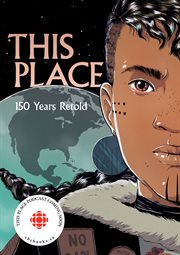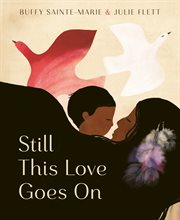Review by New York Times Review
THE BRITISH AUTHOR Patrick Gale opens his 16 th novel with the kind of ironic episode fiction often employs to reinforce a theme: Several less-than-benign asylum attendants undress Gale's protagonist, Harry Cane, restrain him in a hot bath and declare, "This is to calm you." In fact, Harry has already lived his life calmly. To be other than calm - to assert one's self, to demand something - requires a courage he doesn't seem to possess. An Edwardian gentleman "schooled in conformity," Harry strolls about London, lunches at his club and takes tea. Often he steams, without restraint, in the local Turkish baths. He has no job, no real diversions. When he swims, he's "a paddler, not a plunger." Yet what concerns Gale is the storm that hides beneath the calm, even from Harry. (Say "Harry Cane" fast enough and you get "hurricane.") An all but accidental gay interlude exposes Harry's "clothed life for a sham." His quietude is, it appears, born of longing, a "buried essence" shadowed by the threat of imprisonment and, at the least, social spurning. Even as "A Place Called Winter" merges certain aspects of the mystery, romance and western genres, it also aims to survey the vulnerability and alienation intrinsic to humanity and its lacquered societies. Harry wouldn't have called himself gay - he has a wife, a daughter, an all-star brother who "faced the world openly" - but once his family deems him an "unmentionable," he ships off for Canada's prairie provinces, where a man looking to abrade scandal can get 160 acres if he fences it, farms it and subsists on it for three years. Self-knowledge, Gale suggests, is built from the ground up. If the fence Harry erects on his acquired land is a metaphor for his ingrained isolation, his new neighbors - a dungaree-donning pioneer woman whose experience of sexual assault effects a psychological quarantine; her brother, whose world, like Harry's, has been enclosed by disgrace; and an entire tribe of dislocated Cree Indians - are equally circumscribed. Even Gale's broad-brush villain is corralled by limp-hearted insecurity. Demarcation has been drawn between love and hate, illness and health, wildness and domestication, desire and revulsion. Gale's generally nimble language is alternately as breezy as an E.M. Forster drawing room and as unyielding as the pre-climate-change Canadian north. Yet in the wider spaces of "A Place Called Winter," Gale plants unmusical patches of exposition - how to install plumbing in a frontier home, for instance - that point to commendable research but don't make for great fiction. Occasionally enervated phrases stumble in: Harry's affair reaches "the button-breaking heights of passion"; on the prairie, his old life "sounded like the stuff of fiction." In truth, Harry doesn't rouse much sympathy. He readily and repeatedly accepts his fate; he forgives instantaneously. His supposedly redemptive tale, which clumsily ends with a fence gate installed and fastened open, is an exercise in assailing a god, not living as a human. Gale has spoken of the real-life Harry Cane, his grandmother's father, whom the family inexplicably banished to Canada early in the last century. "I gayed my great-grandfather," he has said, because no records could gainsay the claim. For all but a few of us, faulty memory and shabby archives will, sooner rather than later, rub out our small lives. Those that endure often do so in garbled fashion. Write our stories while we can, Gale seems to be suggesting, before the prairie winds sweep them away. MIKE PEED teaches English at Choate Rosemary Hall, in Wallingford, Conn.
Copyright (c) The New York Times Company [June 3, 2016]
Review by Booklist Review
A family mystery sparked Gale's latest novel. His great-grandfather struck out for Canada from Europe at the turn of the twentieth century to set up a homestead under a cloud of financial difficulties, but family documents suggest there was more to the story. Gale explores one possibility in this beautifully spare, richly imagined work. The eldest son of a well-off English businessman, Harry Cane is a shy man prone to stammering who fills his days with the leisure activities of gentlemen. When his unexpected passion for a male member of a theater chorus is discovered, however, it threatens to ruin him. He agrees to leave behind his wife and child and strike out to the Canadian frontier, where 160 acres are being offered to anyone who can stay on the land and cultivate it. Part frontier novel, part romance, A Place Called Winter offers a fascinating glimpse into the psychological and social turmoil, and the very real dangers, faced by those who didn't fit neatly into the ideal of matrimony in a straitlaced society.--Thoreson, Bridget Copyright 2016 Booklist
From Booklist, Copyright (c) American Library Association. Used with permission.
Review by Kirkus Book Review
British novelist Gale (A Perfectly Good Man, 2012, etc.) creates a novel about his maternal great-grandfather, who left England at the start of the 20th century to farm in Canada. As the novel opens shortly after World War I, Harry Cane finds himself in a mental asylum, having suffered a trauma the doctors assume occurred in battle although Harry can't remember. Chosen to participate in an experimental treatment community, Harry undergoes hypnosis to piece together his past, and he remembers being largely neglected by his wealthy widower father. In contrast to his outgoing, sunny younger brother, Jack, who becomes a veterinarian, shy stutterer Harry has not worked a day in his life by age 28. He has, however, married Winnie Wells and become a father to a baby. The placid marriage lacks passion; Winnie admitted on the honeymoon that she still loves another man. After bad financial advice from Winnie's brother plunges both Harry and Winnie's family into financial distress, Winnie's younger sister, Pattie, ends up dancing in musical comedies as a Gaiety Girl. She introduces Harry to an actor/voice instructor whom Harry sees for a year to cure his stutter and his sexual loneliness. Then an incriminating note falls into the wrong hands and Winnie's brothers banish Harry from England. In Canada, Harry apprentices with a Danish farm family for a year, then buys a parcel of land in Saskatchewan. While he mourns the loss of wife, daughter, and brother, he enjoys his freedom and finds his sense of himself as a farmer. Gale juxtaposes Harry's present life as a patient with his memoriesthrough which an evil shadow lurks. A bit plodding at times and the sexual angle feels almost old-hat, but Gale creates in Harry a complicated, ultimately sympathetic hero. Copyright Kirkus Reviews, used with permission.
Copyright (c) Kirkus Reviews, used with permission.


